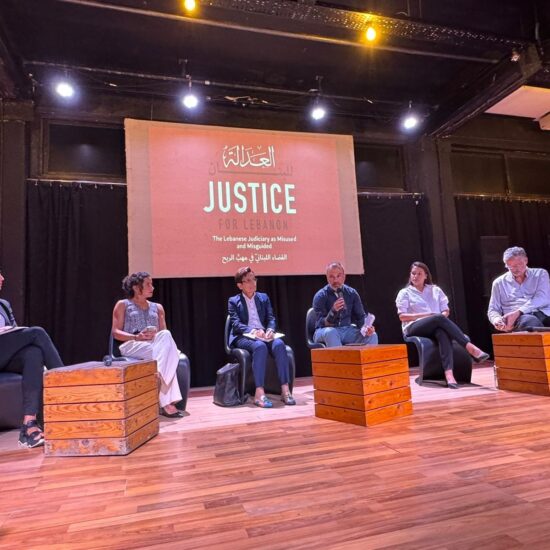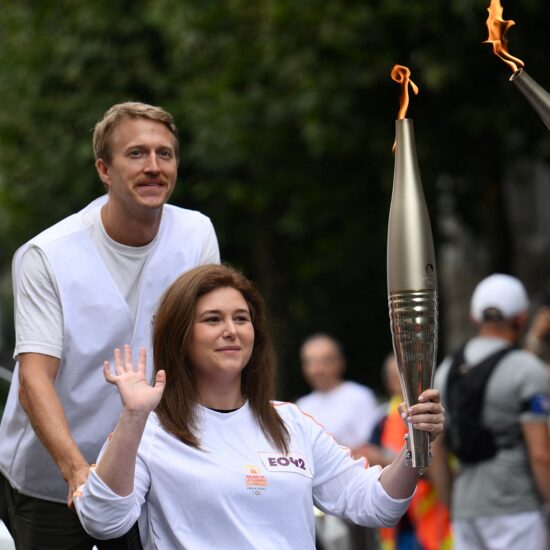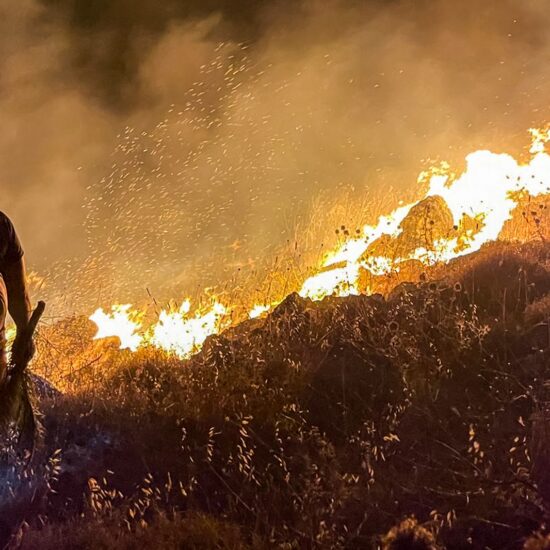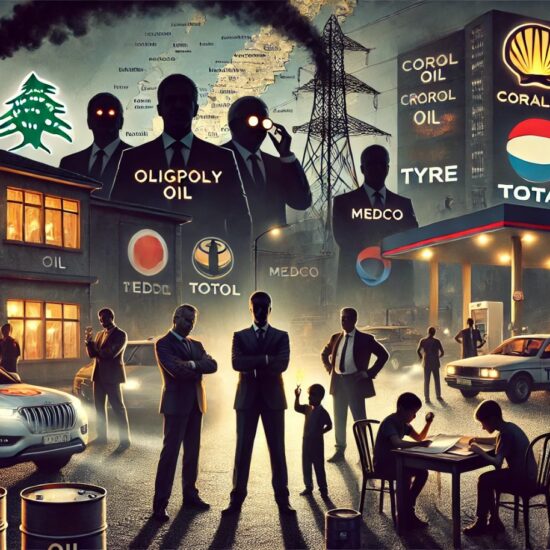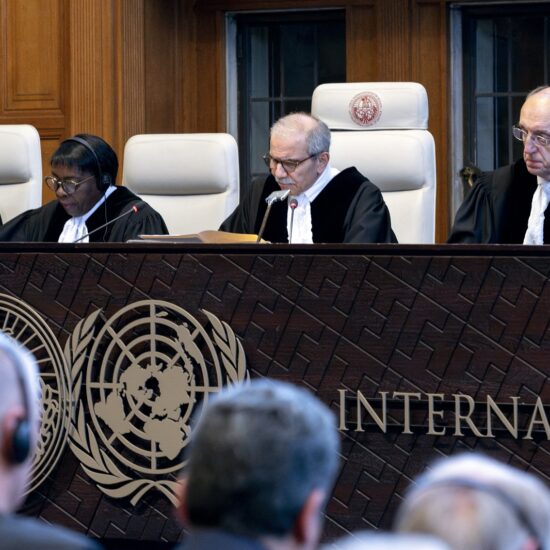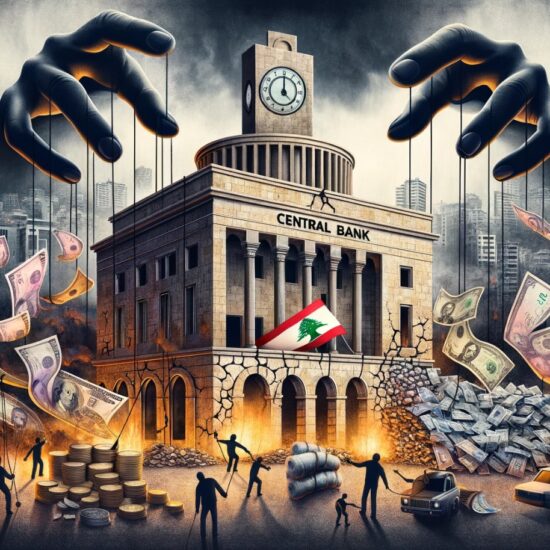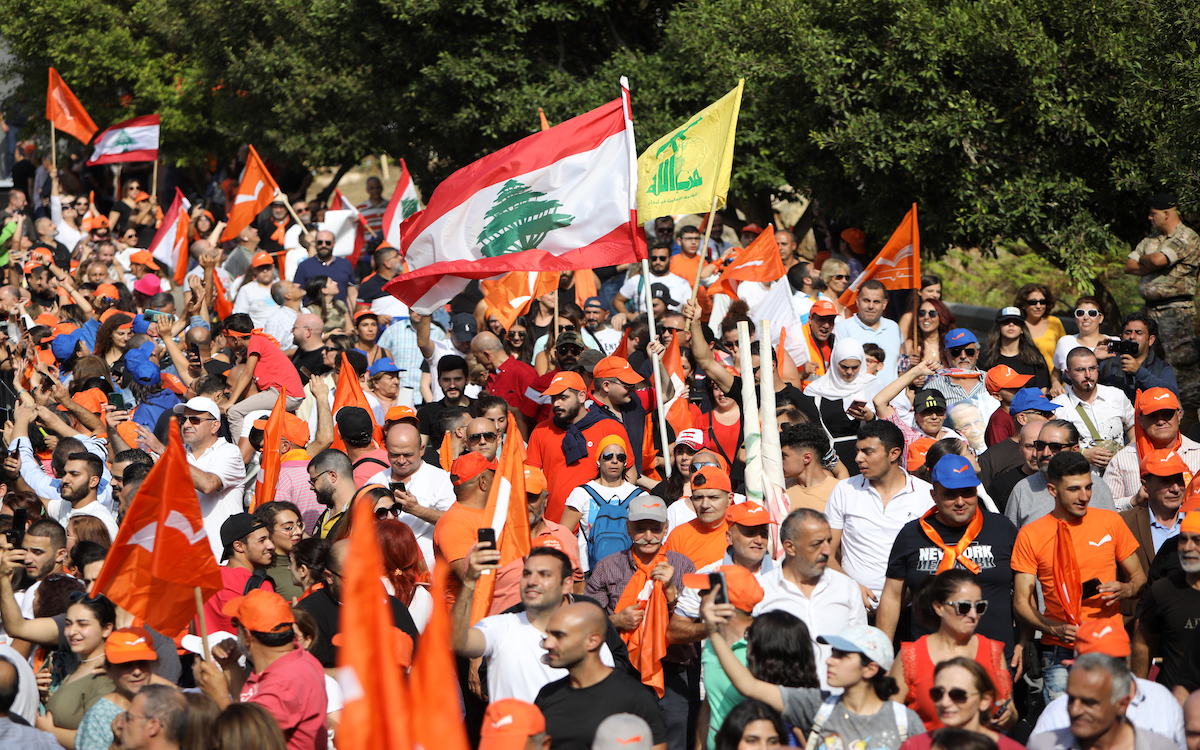
When the Shiite Hezbollah and the Maronite Christian Free Patriotic Movement signed the Mar Mikhael Agreement in 2006, it created waves in Lebanese politics that are felt over a decade later.
While much of Lebanon was piling into the March 14 camp that saw Syrian control over Lebanon come to an end in 2005, Hezbollah and the pro-Syria bloc were becoming increasingly isolated.
However, that changed when Michel Aoun, the founder and leader of the FPM, sat down with Hassan Nasrallah, the secretary-general of Hezbollah, to officialize their alliance.
The mutually beneficial relationship came to an all-time high in 2016, when Aoun was propelled into the presidency thanks to Hezbollah’s support. In doing so, Hezbollah ensured that they had an ally in Lebanon’s highest office that also served to provide them with a Christian cover, practically making Hezbollah the most dominant force in the country.
In the years since Aoun became president, though, this relationship has increasingly soured.
The cracks in the alliance first started to show in December 2021 when, in a televised speech, Aoun brought up the possibility of re-discussing the national defense strategy.
Then, at the start of January 2022, Aoun’s son-in-law and current leader of the FPM, Gebran Bassil, said that he “wants to develop” the agreement between the two parties.
Now, as Lebanon prepares to enter 2023 without a president, the distance between Hezbollah and its Christian ally appears to have widened, publically attacking each other in the media amid disagreements on who should be the next president and whether or not the government should be able to meet while there is no president.
“I am not saying that the Mar Mikhael Understanding failed,” Bassil told the Lebanese broadcaster LBCI. “Rather it is at stake.”
Despite Bassil’s public remarks, analysts say that there is a very small likelihood that the alliance between Hezbollah and the FPM will come to an end, as Bassil is too dependent on Hezbollah’s support or else he risks becoming irrelevant.
“It’s not going to be a split,” Michael Young, a senior editor at the Carnegie Middle East Center in Beirut, told NOW. “There is a little bit of tension but I don’t see this as a permanent split. Gebran simply cannot afford to break with Hezbollah. He has so isolated himself in the political arena that he needs Hezbollah. And they know this.”
What led to this tension?
When Hezbollah and the FPM signed their memorandum of understanding in 2006, it was at a time when both parties were particularly vulnerable.
Hezbollah had just lost its political cover in the Syrian occupation of Lebanon when the Cedar Revolution in 2005, following the assassination of former Prime Minister Rafik Hariri, saw the country demand a Syrian withdrawal from the country.
While Aoun was no fan of the Syrian regime and his party and supporters even took part and supported the protests, after Syria withdrew from the country, Aoun found that he had few friends in Lebanon’s political theater.
“It was and still is a marriage of convenience,” Karim Bitar, an associate professor of international relations at USJ, told NOW. “Michel Aoun found himself isolated when he came back to Lebanon.”
Since Hezbollah needed political cover to ensure that there would be no interference in their domestic and regional activities, and since the FPM was in desperate need of allies, this seemed like a simple solution at the time.
In the years following the alliance, things seemed to work out well for both parties as their mutual support saw their power and influence grow, allowing for the FPM to become the biggest Christian party in Lebanon, eclipsing their Christian rivals, the Lebanese Forces.
Then, in 2014, Michel Suleiman’s tenure as president came to an end.
Lebanon’s politicians failed at agreeing on a successor until 2016 when Aoun, with Hezbollah’s backing, was finally elected.
However, when the popular uprising and economic crisis began in 2019 and after the Beirut Port explosion on August 4, 2020, the relationship started to come under much more scrutiny.
Hezbollah has tried to block the investigation into the port explosion, at one point refusing to attend cabinet sessions so that the government could not meet, and with the Iran-backed party continuing to be the most dominant force in Lebanese politics, this began to affect the FPM.
To begin siphoning away support from the FPM Samir Geagea and the Lebanese Forces were able to tap into Christian fears that their power in Lebanese politics was at stake, especially after the October 14, 2021 shootout in Tayyouneh.
This all culminated in the 2022 May 15 parliamentary elections that saw the Lebanese Forces make gains while the FPM lost seats.
They do not have the same respect towards Bassil. And there is a major contention which is Amal Movement which is Hezbollah’s main ally in the Shiite community and the FPM’s main political adversary.
Hezbollah’s alliance with the Amal Movement, another Shiite party, has also served as a source of tension with the FPM as there is little love between the FPM and Amal.
Still, despite their issues, the alliance seemed, for the most part, solid.
Then, the presidential elections began.
Since Aoun came to power, Bassil was largely considered to be the heir apparent, even after he was sanctioned by the United States. But this has become increasingly less likely after the 2019 uprising and the recent parliamentary elections.
While Aoun had earned Hezbollah’s backing for the presidency through his support for the party during the July 2006 war and after, Bassil enjoys no such relationship.
“The situation today is different because they do not have the same debt towards Gebran Bassil,” Bitar explained. “They do not have the same respect towards Bassil. And there is a major contention which is Amal Movement which is Hezbollah’s main ally in the Shiite community and the FPM’s main political adversary.”
Without Hezbollah’s support, a president will not be elected, opening up the possibility of an extended vacancy and political crisis.
Reportedly, Hezbollah is looking to back Sleiman Frangieh for the presidency, seemingly casting Bassil aside for the time being.
“There is one thing and one thing only that united Hezbollah with the Aounists,” Young stated. “It’s the presidency. They brought Aoun to the presidency and Gebran, when he began realizing that they would not support his candidacy, this is when the tension began.”
Backed into a corner
Even though Bassil has stated that he will not support Frangieh, nor the likely consensus candidate, army commander Joesph Aoun, he has few other options than to eventually come around and align himself and his party with Hezbollah once more.
Bassil and the FPM do not have many allies outside of the Hezbollah bloc.
Initially, he believed that other Christian parties, such as Armenian Orthodox Tashnag, might have his back, but after a recent cabinet meeting, he has found that this support is not as certain as believed.
“[Bassil] fears today that with his father-in-law no longer in the presidency that, in a way, what is going to reemerge is sort of the alliance of forces that tried to marginalize Michel Aoun in 2005,” Young said. “There is a fear by Gebran that the traditional political class will essentially gang up against him and marginalize him.”
This marginalization is something that would likely happen as few in the opposition or the Hezbollah bloc would work with him and his party.
Hezbollah’s need for the FPM’s support has also decreased over the years.
When Saad Hariri, son of Rafik Hariri, was involved in Lebanese politics, he served as a political foil to Hezbollah, posing as a threat, no matter how small, to the group.
But that threat has since disappeared.
In January, Hariri announced his retirement from politics, creating a leadership vacuum within the Sunni community that has not really been filled.
Najib Mikati, a veteran Sunni politician from Tripoli and the current caretaker prime minister, has an amicable relationship with Hezbollah, much different than Hariri’s much more contentious relationship with the armed Shiite party.
The main Sunni opposition leader to Hezbollah has become Ashraf Rifi, a newly elected MP for Tripoli, but he enjoys only a fraction of the support that Mikati does and comes nowhere close to having the Sunni community’s backing like Hariri did.
This was partially caused by Bassil and the FPM.
“Gebran did not understand the dynamics with Saad Hariri,” Young noted. “He was happy to undermine Hariri but what he didn’t understand is that if you undermine Saad Hariri, the value of the Aounists will be diminished. Without Saad Hariri to stand as a counterpoint to Hezbollah, then Hezbollah will feel much less threatened without the Sunnis against them and, therefore, the Aounists would be of less relevance to Hezbollah.”
Even when it comes to electing a president, Bassil and the FPM are not that important as there are other options within the Christian community.
They will not give up on Bassil because why should they? He represents a portion of the Christian community. They don’t have to give up on him. On top of this, he needs them more than ever. So they have someone who is under their thumb.
Though Frangieh has Hezbollah’s support to be president, he faces a serious issue when it comes to support from the Christian community, a prerequisite for anyone that seeks the office.
“When it comes to Frangieh, there is a bigger problem,” Young stated. “Frangieh has a problem, generally, with Christian support. Frangieh as a Christian candidate precisely goes against the grain of what [Michel] Aoun and someone like Geagea have been saying.”
This plays into Bassil’s favor who, despite not being the most popular candidate, does enjoy Christian support. But he still is missing Hezbollah’s support, an unofficial requirement for a candidate to become president.
This leaves few viable options for the presidency outside of Joseph Aoun.
In the event that Joseph Aoun becomes the consensus candidate, he will almost assuredly have the support of the Lebanese Forces and, if he is able to provide assurance to Hezbollah, then he will also have the Party of God’s backing, all but guaranteeing his candidacy.
“Gebran has painted himself into a corner,” Young explained. “If there is a consensus that emerges around Joseph Aoun, they won’t need Bassil. The fact is that the Lebanese Forces will vote for Joseph Aoun which will give Aoun the coverage he needs. So Bassil’s support is not necessary.”
This does not mean that Bassil will not support the army commander in the end, if that is how things appear to be going.
“Bassil has understood that he has very little chances at this stage so he is trying to make sure that the newly elected president would allow him to be one of the main decision-makers in the upcoming years,” Bitar stated.
This is something that Bassil desperately needs as, according to both Young and Bitar, there is tension within his own party when it comes to the alliance with Hezbollah as an increasing number of FPM members are becoming uncomfortable with the relationship and see it as being more harmful to the party than a benefit.
The main thing keeping the party together and its members backing Bassil, Young said, was the existence of former president Aoun himself, as he continues to support his son-in-law and is able to act as a sort of unifying force for the party.
Once the 89-year-old Aoun dies, however, there could be a major change in party dynamics, and support for Bassil may fade away.
“He feels that he is under pressure at all levels and this is why Hezbollah, as far as he is concerned, is his only guarantor. It’s the only party that wants to keep him sort of politically viable and why he will not break with them,” Young stated.
Bassil may continue to voice his opposition to Hezbollah’s choices for the presidency and for the government meeting, which was only possible because Hezbollah supported the decision, but as he continues to have presidential ambitions, the FPM leader has few options but to continue his alliance with Hezbollah, even if the balance of power has shifted.
“Today he is less relevant than he was a decade ago,” Young said. “They will not give up on Bassil because why should they? He represents a portion of the Christian community. They don’t have to give up on him. On top of this, he needs them more than ever. So they have someone who is under their thumb.”
Nicholas Frakes is a multimedia journalist with @NOW_leb. He tweets @nicfrakesjourno.



